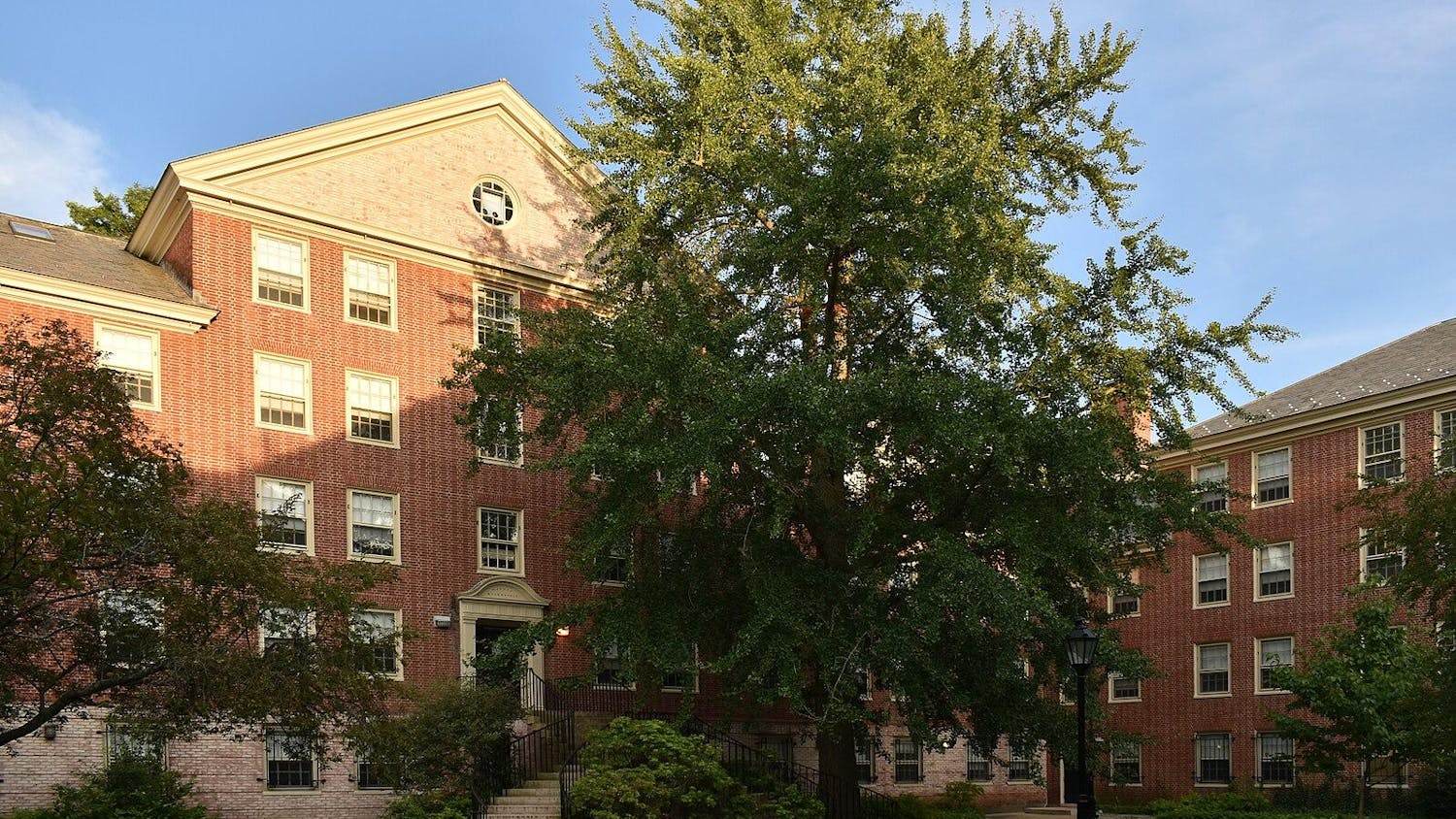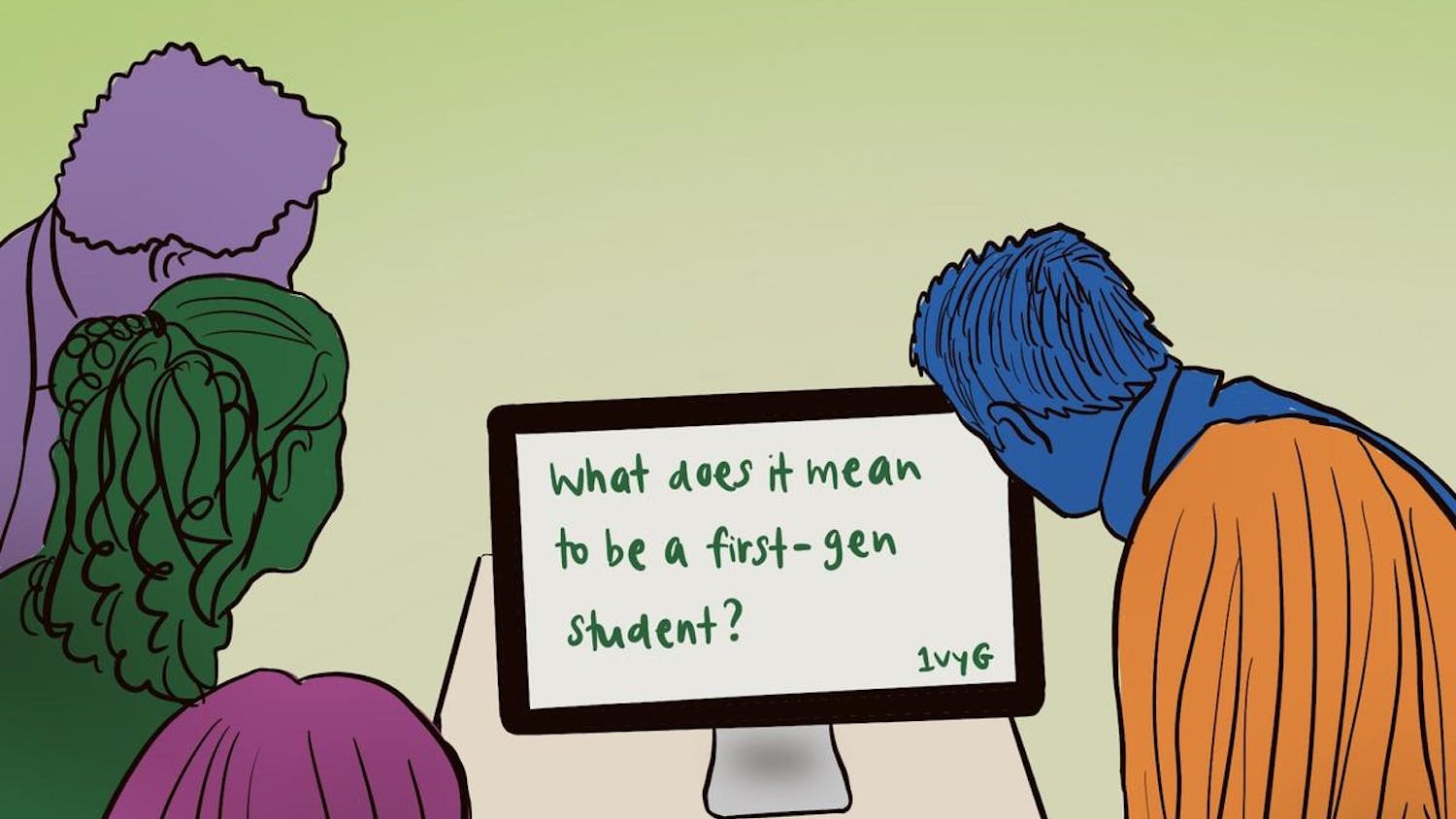Undergraduates and other community members voiced concerns and suggestions about the University’s sexual assault policies in a two-part forum Wednesday night co-sponsored by the Undergraduate Council of Students and the Coalition Against Sexual Assault and Relationship Abuse.
The first part of the forum featured a panel of speakers, while the second part comprised an open discussion.
Hundreds of attendees gathered in a three-quarters-full Metcalf Auditorium. Several of them took the opportunity to ask passionate questions about topics of personal importance related to sexual assault policy.
The discussion was led predominantly by Russell Carey ’91 MA’06, executive vice president for planning and policy and co-chair of the Sexual Assault Task Force.
Carey began by expressing the task force’s desire for student input. “We’ll answer questions about the process and what we’re doing so far … but we also really want to prioritize hearing your feedback,” he said.
There is a tension between the University’s needs to adhere to fair disciplinary processes and to prioritize the safety of individuals, Carey added.
Other committee members present included Michele Cyr, associate dean for academic affairs for biology and medicine and co-chair of the task force, Kirstin Boswell-Ford, associate University chaplain, Jack Hayes, director of athletics, Liza Cariaga-Lo, associate provost for academic development and diversity, and student representatives Lauren Stewart ’15, Katherine Byron ’15 and Justice Gaines ’16.
Audience member Sarah Dillard ’16 expressed concern to the members of the task force that “for the appeal process, it’s a very specific process with five days to file an appeal, but there is no mentioning of how long any of the other parts of the process take.”
Gaines responded by acknowledging an imbalance exists between students’ deadlines in the process and the University’s own time frame. “That’s something we’ll definitely be looking at.”
If a student is charged with sexual assault, there is no measure preventing the student from appealing the ruling and staying on or near campus, Gaines added.
Emma Hall ’16, another audience member, said when people are waiting for administrative decisions on suspending or expelling an alleged perpetrator of sexual assault, de facto punishments could potentially be less severe than intended: “The time that they’re spending on campus during the appeal process is being subtracted from the time they’re supposed to be away from the University.”
Several students suggested improving the manner in which sexual assault policies treat victims.
“The victim should definitely have some say in the deadline that the perpetrator can reapply for admission,” said Susannah Slepian ’15, an audience member.
Jamie Marsicano ’15.5, another audience member, said he was frustrated with “just the fact that an assailant can come back to campus while their victim is still a student. Their existence in this space is triggering. This has to change.”
Some suggestions audience members raised for educational and preventative methods included sending a document about reporting sexual assault to first-years as part of their orientation materials and requiring leaders of student groups and organizations to be trained in preventing sexual assault.
“A lot of this information is buried in PDFs and PDFs,” said Edward Cleofe ’15, adding that one concise document “with flow charts of how these processes work would be really helpful.”
UCS President Maahika Srinivasan ’15 said group leaders are currently required to attend meetings to acquire certain group categorizations, adding that including sexual assault prevention training “as part of party training is something that needs to happen.”
Additionally, a panel of administrators affiliated with sexual assault policy spoke about the nature of their jobs and their involvement in the process of examining sexual assault charges.
The speakers included Michelle Nuey, manager of community relations and outreach at the Department of Public Safety, Bita Shooshani, coordinator of sexual assault prevention and advocacy, Gail Cohee, director of the Sarah Doyle Women’s Center, Yolanda Castillo-Appollonio, associate dean of student life, and Cariaga-Lo.
Moderated by Director of Health Promotion Francie Mantak, the speakers emphasized their work to make survivors aware of their options in sexual assault proceedings, including health care options and ways of reporting assault.
“It is important to recognize that the work around concerns around sexual assault … is really a collective work of the community,” Cariaga-Lo said. “The people at this table are a team, who we realize bring a wealth of expertise to these issues.”
The event Wednesday night marked the first in a series of forums featuring the Sexual Assault Task Force members.
A second forum aimed at gathering undergrad input will take place on Tuesday, and a third forum seeking faculty and staff feedback will occur next Friday.

ADVERTISEMENT




